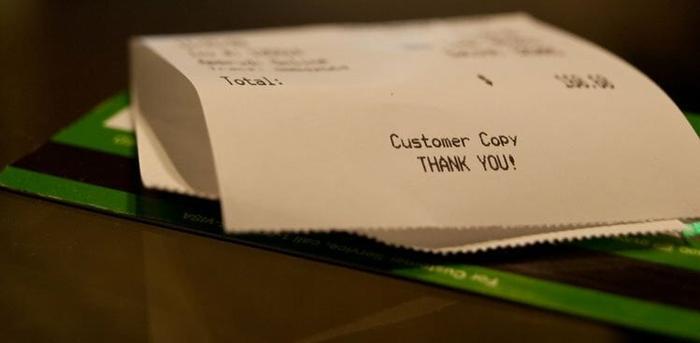
Filing expense reports ranks right up there with root canals on my fun scale. Despite the fact that my company legitimately owes me a good deal of money, I almost always dread having to file those reports.
This probably has its roots in my first job out of college, when I asked my boss for some guidance on what expenses were appropriate for an upcoming business trip. She simply said, “Use your best judgment.”
Um, thanks. Given that I’d never been on a business trip, I had a feeling that my best judgment probably differed from hers.
But, I think that was the point. When I became a manager and my employees asked me the same question, I found myself giving the same vague response. I wanted to test my staff to see how they handled themselves without supervision—if they went hog-wild and blew hundreds of dollars on booze one night, I might question their decision-making skills (and yes, I might also pass them over for a promotion in place of the person who handled the challenge sensibly).
The moral of the story? When your boss says “Use your best judgment” when spending the company dime, she means it. How you handle your expenses will say a lot about you as an employee, and it can also impact your reputation with your boss.
Fortunately, I’ve developed a few tricks over the years—and these come in handy to help keep myself in check when I’m raking up receipts.
Watch and Learn
The best way to gauge how much you should be spending is to watch your more seasoned colleagues. Chances are, you’ll be eating, drinking, and staying in the same places, so you’ll have plenty of chances to stall and see what they do first.
Here’s an example: When you and your colleagues head out to dinner, let everyone else order first, and pay attention to the cost of each person’s order. When it’s your turn, make sure your pick is the least expensive, or in the same range as the lesser-priced orders in the group. No, just because your boss orders filet mignon, doesn’t necessarily mean you should follow suit. But when the veteran travelers all order Cobb salads, follow their lead, and your boss will never question the cost of your meal.
And what if there won’t be anyone else on your trip? Try to do some research beforehand. Ask other colleagues things like “I’m headed to Chicago—can you suggest a few places to eat?” Find out where the rest of the team usually frequents, and you'll have a few spots you know are safe to expense.
Don’t Be Greedy
This probably seems obvious, but I can tell you from experience, it’s easy to feel like you can live a little when your office is flying you around, paying for your hotel, and sending you to fancy dinners with clients. And, while you may see your other people living it up because they know someone else will be picking up the tab, it’s a better bet to keep your spending to a minimum whenever possible.
Rule of thumb: If you wouldn’t buy it with your own money, don’t expense it. A glass of wine with dinner? Fine. A glass of wine, plus three cocktails, a couple apps, and dessert? The “need” for that isn’t going to be easy to justify.
Don’t Be Cheap
It seems reasonable you shouldn’t overspend on the company dime—but what about the less expensive items? Can you expense your morning latte and bagel when traveling for work? Technically, sure, you can ask your company to reimburse you that $4.67 you paid for a small coffee and bagel, but I guarantee you won’t be winning any points when your boss sees this on your itemized report.
For example, I had one employee submit an expense report for a $1 parking fee from a client meeting. Are you kidding me? I gave her back her dollar, but ever since then I always felt like she was trying to fleece the company for all she could.
Yes, your company should pay for reasonable expenses when you’re out and about representing the company, but nickel-and-diming your expenses will make you look unprofessional and immature, not to mention miserly. Here’s a good trial: If it’s something you typically buy yourself on a regular day of work, don’t expense it (but do keep your receipts, in the off chance your boss offers to pay for the little things as well).
Always Ask for Receipts
On that note, next to keeping your spending within reasonable limits, keeping your receipts is the most important thing to remember when you’re on assignment outside the office. I can’t even count how many times I’ve had employees submit expense reports without any evidence of the expenditures. No matter how much you think your boss trusts you, she can’t just take your word for it you spent $256 on your last business trip.
When I asked one employee why she didn’t include her receipts for a relatively small expense—one I totally would have approved—she admitted she was worried I might not approve the item, so she just “forgot” to ask for a receipt. She was right: I didn’t approve it. But not because I objected to the purchase—because I had no evidence it actually happened.
Quick tip: Swipe the hotel stationary envelope from your room and keep it in your purse or briefcase. Wrap a big rubber band around your wallet to remind you to ask for the receipt—then drop that receipt in the envelope as soon as you receive it. And if there’s anything unusual about the expense, write it on the back before you file it away.
Every company and every boss has a different approach to handling expenses, which means there’s no hard and fast rule that’ll apply to every situation. But, stick to these guidelines, and your boss will never have a reason to question your best judgment.